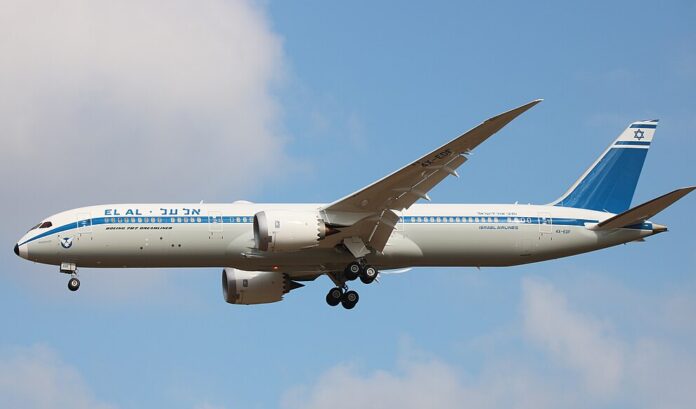Dozens of global airlines suspend Tel Aviv flights after Houthi missile injures six at Ben Gurion
A ballistic missile launched from Yemen struck Ben Gurion International Airport on Sunday, prompting a cascade of flight cancellations from major international airlines and throwing Israel’s aviation sector into renewed turmoil. The missile, launched by the Iran-backed Houthi rebels, injured six people and briefly shut down operations at Israel’s main airport.
By late afternoon, only a handful of foreign airlines continued operating flights to and from Tel Aviv. The vast majority — including Lufthansa, Air France, Delta, and British Airways — suspended their services until at least May 6, citing security concerns.
Lufthansa, along with subsidiaries SWISS, Austrian Airlines, and Brussels Airlines, called off all scheduled departures to Israel from European hubs including Frankfurt, Vienna, Zurich, and Munich. “Due to the current situation, the Lufthansa Group has decided to suspend its flights to and from Tel Aviv up until and including May 6,” the airline stated, pledging to rebook affected passengers where possible.
Other European carriers quickly followed. Air France cancelled its Sunday flights, and Wizz Air halted services until Tuesday morning. Air Europa, ITA Airways, LOT Polish Airlines, and Ryanair joined the growing list of airlines grounding Israel-bound flights due to what they termed “operational restrictions beyond our control.”
U.S. carriers took similarly cautious stances. United Airlines suspended its twice-daily New York–Tel Aviv route through May 8, while Delta Airlines axed Sunday’s flight from JFK. “The safety and security of our customers and crews is our No. 1 priority,” Delta said in a statement.
The escalation occurred just minutes before the missile struck Israeli airspace. The Israel Defence Forces (IDF) failed to intercept the projectile, which exploded inside the grounds of the airport. The impact temporarily shut down all takeoffs and landings. Flights resumed roughly 30 minutes later, but the incident shattered any lingering confidence in aviation stability.
Despite the disruption, some carriers, including Ethiopian Airlines, Iberia, flydubai, and Blue Bird Airways, continued operations as scheduled, according to the Israel Airport Authority.
Embed from Getty ImagesTravel industry experts say the response from international airlines was swift but measured. “Unlike previous closures, we’re seeing fewer panicked customers,” said Revital Ben Natan, CEO of Ofakim Travel. “But it’s still too early to assess the long-term impact. Airlines will need days to monitor the situation and determine whether it’s safe to return.”
Meanwhile, Israeli carriers capitalised on the disruption. El Al shares surged nearly 7% on the Tel Aviv Stock Exchange, continuing a 49% rally since the start of the year. Israir’s stock also gained 4.1%. With foreign airlines grounded, local carriers have seen soaring demand.
El Al announced special fares from regional destinations to help Israelis stranded abroad. One-way tickets from Larnaca, Cyprus, will cost $99, and flights from Athens, Greece, will be offered at $149 starting Sunday evening.
Since the IDF resumed its Gaza offensive on March 18, the Houthis have launched 27 ballistic missiles and several drones at Israel, intensifying their involvement in the broader conflict. Only about half of those missiles triggered warning sirens or were intercepted; others either missed or landed without warning.
The Houthis’ anti-Israel campaign began in November 2023, a month after Hamas’s October 7 attacks on southern Israel, which killed 1,200 people and resulted in the abduction of 251 hostages. The incident triggered a full-scale war, now pulling in other regional actors.
Despite recent signs of de-escalation and partial resumptions of flight services, the latest missile strike serves as a stark reminder of how volatile the region remains. Travel agents now urge passengers to adopt flexible booking policies and invest in insurance to prepare for further disruptions.
“We’re in a dynamic and uncertain environment,” said Ben Natan. “Customers must stay informed and plan for every scenario.”
